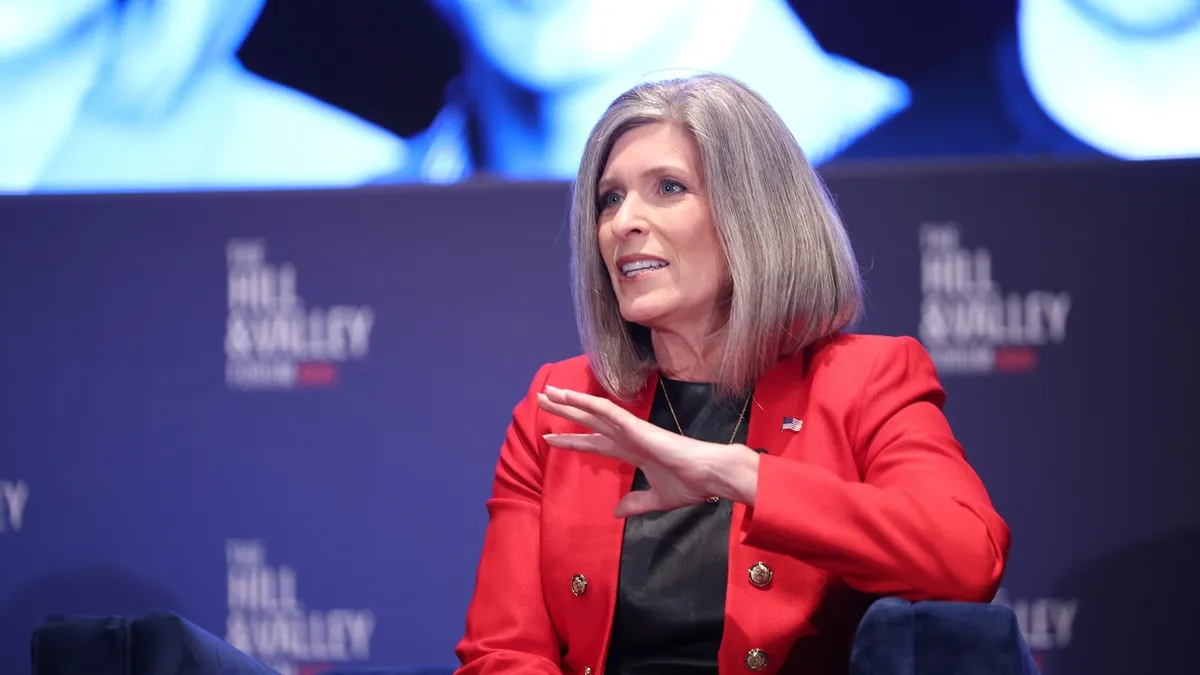
During a recent town hall meeting in Butler County, Iowa, Republican Senator Joni Ernst encountered a group of agitated constituents expressing their concerns about potential cuts to Medicaid. The proposed cuts stem from the Republicans' ongoing legislative efforts to support President Donald Trump's agenda, which many attendees feared could jeopardize lives by limiting access to essential health care and food benefits, including the Supplemental Nutrition Assistance Program (SNAP).
As constituents voiced their worries about the implications of Trump's "big, beautiful bill," Ernst responded with a dismissive remark: "Well, we all are going to die." This comment sparked immediate backlash from the audience, highlighting the intense emotions surrounding the proposed Medicaid cuts. One audience member passionately shouted, "People are going to die," prompting Ernst to defend her position.
Ernst clarified her stance, stating, "What you don't want to do is listen to me when I say that we are going to focus on those who are most vulnerable." She emphasized the importance of protecting those who meet the eligibility requirements for Medicaid, while suggesting that individuals who have other options for health care should not burden the system. "If you don't want to listen, that’s fine, but what I am doing is telling you that those who are not eligible, those that are working and have the opportunity for benefits elsewhere, should receive those benefits elsewhere," she reiterated.
The proposed Medicaid reforms are part of a larger spending package that Republicans are pushing through Congress, with the House recently passing the One Big Beautiful Bill Act. This legislation seeks to implement significant changes to Medicaid while extending the tax cuts initiated in 2017 and increasing funding for critical areas such as border security and defense spending. According to the Congressional Budget Office (CBO), this bill could add approximately $3.8 trillion to the federal debt over the next decade, raising concerns about long-term fiscal responsibility.
Despite these challenges, Republicans argue that the bill aims to generate savings by targeting waste, fraud, and abuse within the Medicaid system. House Speaker Mike Johnson has emphasized the need to address fraudulent practices, although the specifics of the Medicaid provisions have not yet been officially evaluated by the CBO.
Ernst faced considerable skepticism from her constituents during the town hall. Many audience members expressed disbelief over her claims that the bill would not cut Medicaid benefits. One health care worker articulated the plight of many on Medicaid, stating, "While many people on Medicaid have jobs, they do not earn a living wage." This sentiment resonated with the crowd, who cheered in agreement.
In her defense, Ernst stated, "We are not going to cut those benefits for those children," referencing the importance of maintaining coverage for children in need. However, her assertion that the bill would not adversely affect those reliant on Medicaid was met with audible discontent from the audience.
As a member of the Senate DOGE caucus, Ernst also spoke about the ongoing efforts of the Department of Government Efficiency to refine the role of federal and state governments. She argued for a return to foundational principles, stating, "We are $36 trillion in debt. Both sides have contributed to this. But when does it end?" Her comments about the necessity for reform were met with mixed reactions, as one audience member shouted, "chaos!"
Despite the contentious atmosphere, Ernst maintained that the conversation surrounding Medicaid and health care reform is crucial. The ongoing debate reflects broader national discussions about health care accessibility, fiscal responsibility, and the role of government in providing social safety nets.